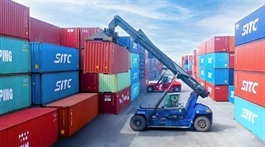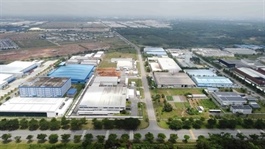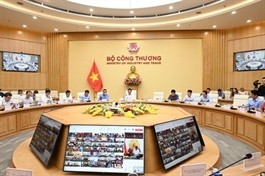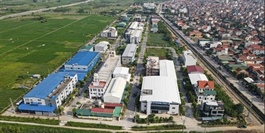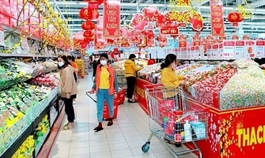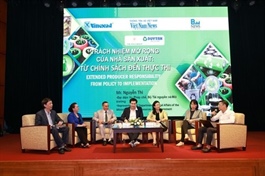Retailers put export-quality products on shelves to capture green consumption trend
Retailers put export-quality products on shelves to capture green consumption trend
Domestic retailers are increasing the distribution of export-quality products in an effort to catch the consumption trend towards green, environmentally friendly and safe products.
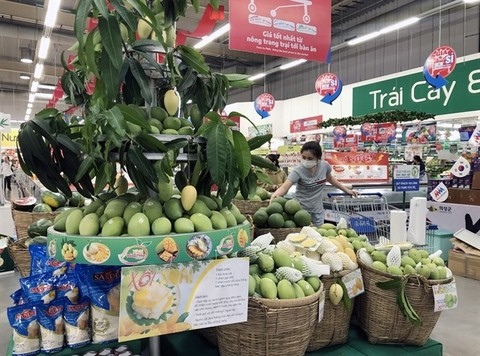
MM Mega Market An Phú, HCM City. It is important to enhance the linkage between production and distribution towards establishing a sustainable supply chain. — VNA/VNS Photo Mỹ Phương |
Recently, Bách Hoá Xanh mini-mart chain of Mobile World Investment Corporation signed a strategic cooperation agreement with Minh Phú Seafood Corporation, one of the leading fishery producers in Việt Nam, to put export-quality shrimp products on shelves of Bách Hoá Xanh.
Phạm Văn Trọng, Bách Hoá Xanh’s general director, said domestic retailers were making the effort to find and sell high-quality products to Vietnamese consumers.
Previously, people often thought that good-quality products were all for export, but Bách Hoá Xanh was doing the opposite to enable domestic consumers to enjoy products of a quality to compete in highly demanding markets.
Lê Văn Quang, general director of Minh Phú Seafood Corporation, said that cooperation with the retail system would be important to bring export-quality products to domestic consumers.
Saigon Co.op also signed with six companies supplying 500 tonnes of goods per month on average to the retail system of Saigon Co.op a commitment to develop green and sustainable supply chains and ensure benefits in terms of consumers’ health.
Promoting export is critical in a world of rapid international integration, but to gain strength in export, it is important for enterprises to have strong foothold in the domestic market, Nguyễn Thanh Hải, general director of Qui Phúc Trading – Service – Production Company Limited said.
Some enterprises still find it difficult to put products on the shelves of domestic retailers.
Bùi Trung Kiên, director of Xuân Thái Thịnh in Lâm Đồng Province, said that many of his company’s products were exported to strict markets including Japan and the European Union (EU), but could not get a place in the domestic distribution system even though the company had invested in production technology meeting international standards.
According to Trần Văn Liêng, President of Việt Nam Quality Association of HCM City, the domestic distribution should have recognition and give priorities to enterprises making efforts to promote green production, circular economy, improving quality and business ethics.
Trần Kim Yến, Deputy Head of the Steering Committee of the campaign ‘Vietnamese prioritise Vietnamese products’ in HCM City, said that the most important solution was to enhance linkage between production and distribution towards a sustainable supply chain.
The domestic market of Việt Nam was growing in depth, not simply stopping at quality, durability and price, but aiming at quality certification and global standards.
Nguyễn Thị Thanh An from the Australian Centre for International Agricultural Research said that support was needed to enhance the production capacity of domestic enterprises towards high-quality standards.
Besides, the distribution systems should require suppliers to be transparent and create favourable conditions for domestic suppliers to put products on their shelves.




